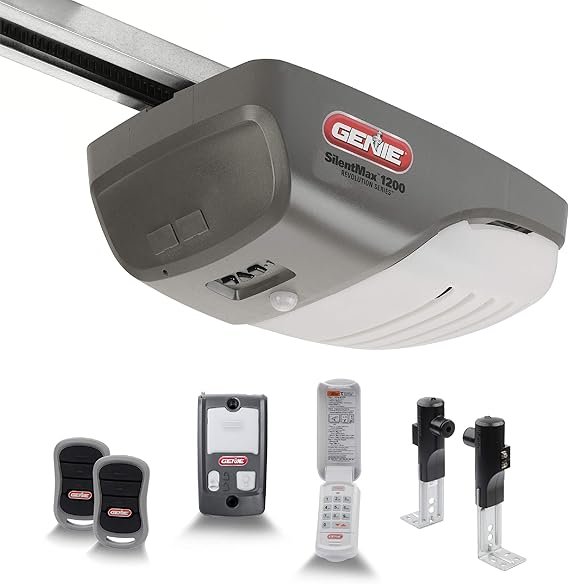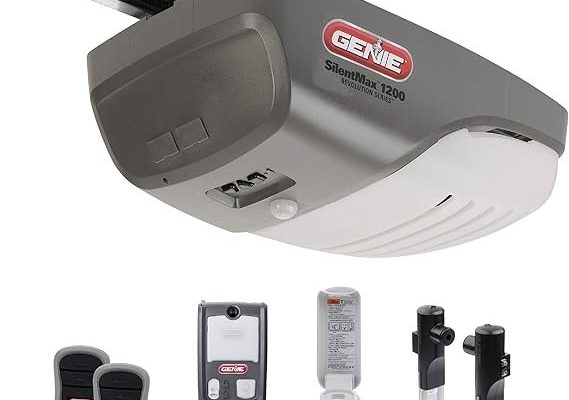
In this article, we’re going to dive deep into the world of garage door openers, particularly focusing on the 140V DC motor. We’ll examine how it compares to other motor voltages, revealing the ins and outs to help you decide what’s best for your home. So grab a cup of coffee, and let’s explore—learning about garage door openers doesn’t need to be daunting!
Understanding Motor Volts: What Do They Mean?
Motor voltage is a key factor in garage door openers, influencing their performance, longevity, and power consumption. Just like how different car engines require different levels of fuel to operate efficiently, garage door openers require specific voltages to handle various workloads. For instance, a 140V DC motor is designed for powerful performance, making it a solid choice for heavier doors. You might be wondering how this affects your day-to-day use.
The primary difference in motor voltages often revolves around power and speed. Lower voltages may work perfectly fine for lighter doors, while heavier doors may need the oomph that a 140V DC motor provides. Higher voltage can mean quicker operation times and less strain on the motor, translating into fewer breakdowns and maintenance needs—definitely a plus for busy households!
Common Motor Voltages for Garage Door Openers
In the market, you’ll often find garage door openers that operate on various motor voltages, including:
- 120V AC
- 140V DC
- 240V AC
Each of these options has its own advantages and disadvantages. 120V AC motors are commonly used and can handle moderate garage doors easily. 240V AC motors are more powerful, suitable for commercial installations or very heavy residential doors. However, the 140V DC motor strikes a balance, providing robustness while being less demanding on your electrical system.
You might be asking, “Which one should I choose?” The answer relies on several factors like door type, weight, frequency of use, and electrical capacity in your garage.
Benefits of a 140V DC Motor
The 140V DC motor comes packed with advantages, particularly when it comes to efficiency and performance. Here are some key benefits:
– Smoother Operation: The DC motor allows for smoother starts and stops, translating to less wear and tear on your hardware.
– Energy Efficiency: DC motors are generally more energy-efficient than AC versions, helping you save on electricity bills. You’ll be surprised at how much you save over time!
– Less Noise: If you value peace and quiet, a 140V DC motor tends to operate more quietly than its AC counterparts. Imagine smoothly lifting your door without the buzz and clunking sounds.
Don’t overlook these features when selecting your garage door opener; they could genuinely enhance your daily experience.
Comparing 140V DC vs. Other Voltage Motors: A Breakdown
When thinking about motor voltage, it helps to see how the 140V DC motor measures up against other options. Here’s a comparative breakdown:
| Features | 140V DC Motor | 120V AC Motor | 240V AC Motor |
|---|---|---|---|
| Power | High | Moderate | Very High |
| Noise Level | Low | Moderate | Higher |
| Energy Efficiency | Very Efficient | Less Efficient | Moderate |
| Recommended Use | Residential | Residential | Commercial |
From this table, you can see that if you have a residential garage door, the 140V DC motor strikes a perfect balance. It maximizes performance while saving energy and keeping noise to a minimum.
Common Concerns with Garage Door Openers
You might encounter a few typical concerns while selecting your garage door opener, such as compatibility, power outages, and maintenance.
Compatibility is often a question. Will a 140V DC motor work with my existing door setup? In most cases, if your garage door is compatible with other electric motors, you’ll have no trouble integrating a 140V DC motor; just check the specifications.
What about power outages? That’s a valid worry. Many modern garage door openers, including those with 140V DC motors, come with battery backup options. This is a lifesaver when the power goes out, ensuring easy access to your garage.
Finally, think about maintenance requirements. While a 140V DC motor usually requires less frequent servicing due to its robust performance, it’s still essential to stay vigilant. Regular check-ins on the tracks, springs, and electronic components can go a long way in preventing bigger problems down the line.
Installation: 140V DC vs. Other Motors
Installing a garage door opener can feel like a challenging task, but it’s definitely manageable with a bit of guidance. In general, the installation process for a 140V DC motor is quite similar to that of other motors, but a few key steps can help it along.
1. Read the Manual: Each garage door opener comes with its own set of instructions. Don’t skip this step!
2. Gather Tools: Generally, you’ll need basic tools like a drill, level, and various screws.
3. Mount the Opener: Attach the motor unit to the garage ceiling, ensuring it’s securely fastened and level.
4. Connect the Wiring: Follow the instructions to wire your motor correctly. For a 140V DC motor, special attention may be needed to ensure the voltage is correctly set.
5. Testing: After you’re done, run a test to make sure everything operates smoothly.
Make sure you’re comfortable with electrical work, as incorrect wiring can lead to issues. If it feels out of your skill set, don’t hesitate to call a pro.
Remote Compatibility: 140V DC and Beyond
One thing many users worry about is whether their remote will work seamlessly with a new opener. If you’re upgrading to a 140V DC motor, ensure your current remote is compatible or be prepared to purchase a new one.
Some common brands provide universal remotes that can sync with various models. If you want to avoid digging into compatibility issues, look for a remote that explicitly states compatibility with 140V DC motors.
Here’s the thing: sometimes the best solution is to invest in a universal remote. They can often sync with multiple brands and models, making it worthwhile for future upgrades.
Troubleshooting Common Issues
Even with a reliable setup, you might run into a few hiccups over time. Here are some common issues you may encounter with garage door openers, including those with a 140V DC motor:
– Door Won’t Open or Close: This is often due to a disrupted power supply, a broken spring, or a faulty remote. First, check the power and battery.
– Noisy Operation: If your opener is making strange noises, it might need lubrication, or there could be an issue with the hardware. Regular maintenance really helps here!
– Unresponsive Remote: Ensure your remote has a fresh battery, and check for any signal interference. Sometimes, simple resets can work wonders.
If the issue persists, consult the manual or contact customer service for troubleshooting help specific to your model.
Ultimately, selecting the right motor voltage for your garage door opener comes down to your specific requirements. If you’re leaning toward using a 140V DC motor, you’re likely making a solid choice for efficiency, power, and quieter operation.
Consider your garage door’s weight, frequency of use, and any personal preferences around noise and energy savings. By weighing these elements, you’ll be better prepared to find a solution that fits seamlessly into your daily routine. Remember, the smoother your garage door operates, the more convenient your life becomes. Happy garage door shopping!
